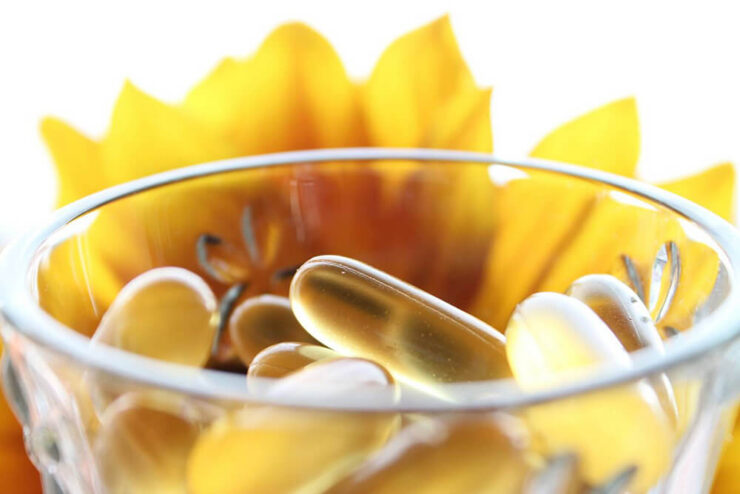What does vitamin K do? The proper functioning of our body is related to many factors. Among them are physical activity, sleep hygiene and a healthy diet. Speaking of a healthy diet, it is impossible not to mention vitamins. There are many, but what does vitamin K do?
Vitamin K is not a single compound, but a group of organic compounds. It includes vitamin K1, or phylloquinone, and vitamin K2, or menaquinone. Vitamin K2 is partly produced in our body by the intestinal flora, but in too small amounts.
Biochemist Edward Adelbert Doisy and Henrik Dam are responsible for the discovery of vitamin K. They were awarded the Nobel Prize in 1943 for their discovery. At this point, it is worth mentioning that a Pole – Kazimierz Funk – is responsible for the discovery of vitamins as compounds necessary for life. He is the founder of the science of vitamins.
- https://www.zark.pl/meble-ogrodowe/
- https://www.pilicka.net.pl/systemy-bezpieczenstwa-muzeow/
- https://www.zti.com.pl/jak-zadbac-o-wlasna-dzialke-poradnik/
Where to find vitamin K?
Vitamins are chemicals that are essential to life. We are able to partially produce some vitamins ourselves, such as vitamin d3, which is formed in the skin under the influence of sunlight, and is further transformed in the liver and kidneys to the active form. Vitamin K, in turn, is produced by bacteria forming the bacterial flora that is found in our large intestine. In both cases, however, the amount of vitamins produced is insufficient and it is necessary to take them with food.
Vitamin K is found mainly in green vegetables such as cabbage, lettuce, spinach, broccoli and cucumber. It can also be found in dairy products such as cheese, yogurt and eggs. The liver is rich in vitamin K and iron. As you can see, the amount of foods rich in vitamin K is very rich. Certainly, each of us is able to enrich our diet with these valuable products.
What is vitamin K responsible for?
Vitamin K is primarily responsible for participating in proper blood clotting. Its main site of action is the liver. It is in this unusual organ that performs several hundred functions that vitamin K takes part in the synthesis of blood coagulation factors (I-XII) and prothrombin.
In addition, vitamin K2 and D3 are responsible for regulating the concentration of calcium in the body. Calcium is an extremely important element in our body. It is necessary for the functioning of the nervous system, enables muscle contractions, and also determines the proper functioning of the immune and bone systems. Vitamin K is stored in the liver cells, but its supply lasts for a short time. Therefore, it is important to take adequate amounts of this compound every day. Particularly at risk of vitamin K2 deficiency are patients during the use of antibiotics, but also those suffering from celiac disease or having frequent diarrhoea.
Vitamin K is especially important for newborns. Its deficiency can lead to hemorrhagic disease. Therefore, shortly after birth, the newborn is given an intramuscular injection of vitamin K.
Vitamin K Deficiency Symptoms
The symptom of deficiency of vitamins from group K are primarily blood coagulation disorders and thus hindered and prolonged healing of wounds and cuts. However, these are not the only symptoms of hypovitaminosis. Others include bone demineralization and the risk of osteoporosis. This is a serious condition involving extreme bone weakness. Their fractures can occur even when performing ordinary, basic activities. Vitamin K deficiency can also impair the work of the heart and the entire circulatory system.
Disturbances in the functioning of the circulatory system may consist in the development of atherosclerosis. This is a very serious disease that involves the build-up of calcium deposits (atherosclerotic plaques) in the walls of the arteries. This leads to a reduction in the lumen of the vessel and impedes blood flow. This is especially dangerous for the coronary vessels (vessels that feed the heart). Coronary artery stenosis can lead to heart attacks. To avoid this, you should practice physical activity, avoid fried foods, and ensure a diet rich in vitamins, including vitamin K.
Blood coagulation disorder associated with vitamin K2 hypovitaminosis is particularly unfavorable in girls and women during menstruation. During the menstrual phase, the lining of the womb (endometrium) is necrotized, sheds off and is excreted outside the body as menstruation. Problems with blood clotting lead to very heavy bleeding in this situation.
Vitamin K supplementation
Currently, the availability of dietary supplements offering vitamins is extremely large. The most common form of supplementation is vitamin K tablets. Such supplements contain both vitamin K1 and one of the two forms of vitamin K2 (MK4 or MK7). The diet should be balanced to provide all the necessary nutrients and vitamins. Sometimes, however, we are aware that our diet does not meet these conditions. Then you can consider taking vitamin supplements. You can easily buy vitamin K2MK7 in stores. A particularly rich selection of vitamin supplements is available in pharmacies. There, we can also use the advice of a qualified technician or master of pharmacy.








